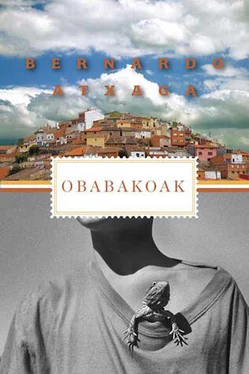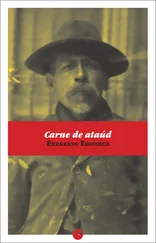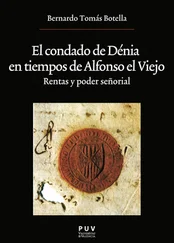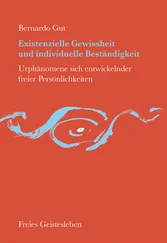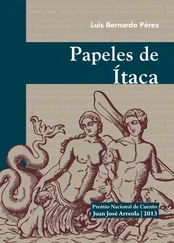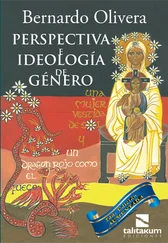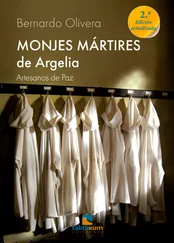Bernardo Atxaga - Obabakoak
Здесь есть возможность читать онлайн «Bernardo Atxaga - Obabakoak» весь текст электронной книги совершенно бесплатно (целиком полную версию без сокращений). В некоторых случаях можно слушать аудио, скачать через торрент в формате fb2 и присутствует краткое содержание. Год выпуска: 2010, Издательство: Graywolf Press, Жанр: Современная проза, на английском языке. Описание произведения, (предисловие) а так же отзывы посетителей доступны на портале библиотеки ЛибКат.
- Название:Obabakoak
- Автор:
- Издательство:Graywolf Press
- Жанр:
- Год:2010
- ISBN:нет данных
- Рейтинг книги:3 / 5. Голосов: 1
-
Избранное:Добавить в избранное
- Отзывы:
-
Ваша оценка:
- 60
- 1
- 2
- 3
- 4
- 5
Obabakoak: краткое содержание, описание и аннотация
Предлагаем к чтению аннотацию, описание, краткое содержание или предисловие (зависит от того, что написал сам автор книги «Obabakoak»). Если вы не нашли необходимую информацию о книге — напишите в комментариях, мы постараемся отыскать её.
Obabakoak
The Observer
Obabakoak — читать онлайн бесплатно полную книгу (весь текст) целиком
Ниже представлен текст книги, разбитый по страницам. Система сохранения места последней прочитанной страницы, позволяет с удобством читать онлайн бесплатно книгу «Obabakoak», без необходимости каждый раз заново искать на чём Вы остановились. Поставьте закладку, и сможете в любой момент перейти на страницу, на которой закончили чтение.
Интервал:
Закладка:
But I saw that he wasn’t listening and dropped the subject. Tassis wasn’t interested in symbols, only etymologies.
“I’m boring you,” I said.
“No, no, it isn’t that. It’s just that today I’d rather talk about something else.”
“As you wish.”
“I’m going to tell you about something that can’t be found in books,” he said, ironically, giving me to understand that he’d cottoned onto my latest habit. For since getting to know him, and as befits a good pupil, I too had taken to studying etymologies. “It’s to do with whether Villamediana has a river or not,” he added.
“You still think it hasn’t.”
“Of course. Since it has no water, it has no movement and therefore lacks the vital ingredient. In all things, movement is the deciding factor. Movement means life. Stillness, on the other hand, means death.” He gave a triumphant laugh, as if he’d just been acclaimed the winner of some contest. But this time, unlike on other occasions, he gave me the impression that he was only pretending, that he didn’t really want to laugh.
“All things, if they are good things, are related in some way to movement. Or to life, if you prefer. But while you cannot see life, you can see movement. I would say that movement is simply another name for life.”
“Go on.”
“If I say that a person is animated, I’m saying a lot of different things at once; I’m saying that the person has anima or spirit, for example, or simply that they’re cheerful. But in fact all the word animate really expresses is life and movement. And the same goes, of course, for animation …”
He fell silent, as if something else had just occurred to him. But then he continued on in the same vein.
“And what, you might ask, about that excellent word vivacious ? Where does that come from? Does that have anything to do with movement? Well, yes it does, a lot.”
“Where does it come from then?”
“From vivax meaning full of life, lively.”
It was the twilight hour when all the animals on earth fall silent. A gentle breeze was blowing and, in the west, the clouds were the color of dark wine. Far off, the rooftops of Villamediana were growing dim.
“Have you ever read anything by the poet Carlos García?” he asked me. I said he wasn’t a poet I was familiar with.
“Why do you ask?”
“Oh, no reason. It’s just that a few poems he wrote about this time of day, the twilight, contain some rather similar thoughts.”
“The word twilight appears in any number of poems,” I protested.
“But the ones I’m telling you about are good!” he shouted. But, possibly influenced by the atmosphere about us, he soon reverted to a whisper.
“Carlos García speaks of the stillness of this hour. He says that this is the hour when all the birds go to rest, fall silent, when the roads empty of people, and that, as the light fades, the landscape takes on the static quality of a stage set… and that the sky itself, with no sun traveling across it, with no shifting clouds, gives the impression of being just another backdrop.”
He was speaking very quietly, so quietly I could barely hear him. I didn’t know this Tassis at all.
“Go on,” I said.
“That’s all. All I wanted to say was that at this hour everything seems very still and that, because there are no reference points, time too seems to stop. In one way or another, it brings with it a remembrance of death.”
A little beyond where Tassis was standing there was a line of three tall plants. I noticed that only one of the plants was moving in the breeze.
“But there’s always some movement, however slight. We hear the beating of our heart, we walk…”
“Yes, of course. And that’s precisely what makes the twilight so special: It mingles life and death and that’s why it has that capacity to make you feel simultaneously happy and sad.”
We spoke ever more quietly, he even more quietly than me. The silences between us grew longer and longer.
“The spectral hour,” I said at last, for it occurred to me that specters never move.
“I’m getting cold,” said Tassis suddenly. I noticed an odd note in his voice and I looked into his face. His eyes were shining with tears.
We walked the rest of the way home in complete silence. I wanted to say something to him but didn’t know what.
“Today’s talk has made you sad,” I remarked when it came to saying good-bye.
“Oh no, not at all!” he exclaimed. But I knew he was lying.
“Would you like to go to the bar? We’ve never been there together.”
“No, thanks, I’d better rush. Claudia will be getting impatient when she sees I’m not home yet. Anyway, I have to do some shopping first.”
He hadn’t even finished the sentence when he was already hurrying off to Rosi’s shop.
The following Friday he didn’t come to the forest, nor the Friday after that. When I think about it now, it seems to me I should have gone and searched him out and asked that we continue our walks together. But I did nothing and it was only much later that I went to see him. And I did so, moreover, for the very reason he’d forbidden: because I felt sorry for him. It was the worst thing I could have done.
During the installation of a bathroom in one of the houses in Villamediana some seventeenth-century frescoes were uncovered and because of that, some restorers came up from Madrid. I met one of them in the hunters’ bar and he invited me over to see what they’d found. Viewing the paintings — the city of Jerusalem on one wall and some religious scenes on the other — didn’t take us long, however, and we soon set to talking about things in general. Inevitably we passed from the name of the village to the figure of Count Juan de Tassis and from there, my fault — of course — to that of Enrique de Tassis.
“He’s not a dwarf by any chance, is he?” exclaimed the restorer, opening his eyes wide, though I was even more surprised.
“Do you know him then?” I asked.
“He studied with me at the university. And he’s well-known in certain circles in Madrid.”
“Really?”
“His real name is Carlos García.”
I was so taken aback I couldn’t speak. My companion was looking at me anxiously. He couldn’t understand the reason for my sudden confusion.
Finally I asked him to give me a brief biography of Carlos García. He told me that he used to write and had published two volumes of poetry, neither of which, unfortunately, had been well received by the public.
“He gave classes in philology. Then he got it into his head that he was descended from the Count of Villamediana and he went a bit crazy. At least that’s what they say. So he lives here now, does he?”
“Yes, but I think he’d probably rather not see you.”
“No, of course,” he agreed.
The following day, I went to the empty quarter with its abandoned houses and knocked at the door of the big house overgrown by nettles.
I had to wait a long time before the door opened, even longer than that first time I went with Daniel. And then he only opened it a crack.
“How’s life treating you, Tassis?” I said by way of greeting.
“Much the same,” he replied. But he was considerably thinner and, unusually for him, his hair had become long and disheveled.
He began to apologize for not going to the forest anymore. He said it was too cold now to go out walking and that he didn’t like leaving Claudia on her own. I suggested we find another place where we could talk.
“It would be best to leave it till the spring. Anyway, talking doesn’t solve anything.”
It seemed to me that he was anxious to close the door again so I bade him good-bye saying that, if he wanted to, we could resume our talks once the winter was over. But I myself knew that was impossible. I’d decided to leave Villamediana that Christmas.
Читать дальшеИнтервал:
Закладка:
Похожие книги на «Obabakoak»
Представляем Вашему вниманию похожие книги на «Obabakoak» списком для выбора. Мы отобрали схожую по названию и смыслу литературу в надежде предоставить читателям больше вариантов отыскать новые, интересные, ещё непрочитанные произведения.
Обсуждение, отзывы о книге «Obabakoak» и просто собственные мнения читателей. Оставьте ваши комментарии, напишите, что Вы думаете о произведении, его смысле или главных героях. Укажите что конкретно понравилось, а что нет, и почему Вы так считаете.
